JournalismPakistan.com | Published June 12, 2012
Join our WhatsApp channel
LONDON: Media baron Rupert Murdoch tried to persuade former Conservative Prime Minister John Major to change his policy on Europe in return for support from his newspapers, an inquiry into press standards heard on Tuesday.
Speaking at the Leveson inquiry, John Major, whose tenure as British Prime Minster lasted between 1990 and 1997, said the founder of News Corporation had met him in 1997, asking him to change his stance on Europe.
"Just before the 1997 election it was suggested to me to try to get closer to the Murdoch press and I agreed that I would invite Mr. Murdoch to dinner and we did have dinner in February 1997," Major told the inquiry.
"The dinner would have contained the usual amount of political gossip that these occasions tend to have."
"It became apparent in discussion that Mr. Murdoch said that he didn't like our European policies and wished me to change our European policies. If we couldn't change those policies he could not and would not support the government.
"It is not often someone sits in front of a prime minister and says to a prime minister: 'I would like you to change your policy or my organization cannot support you'," Major added.
He said he thought Murdoch was "edging towards" a referendum on leaving the European Union.
But he did not change his views after pressure from Murdoch.
"I made it pretty clear we weren't going to change our policies and we moved on to other matters," he added.
In April, Murdoch told the inquiry: "I have never asked a prime minister for anything."
Major said he met Conrad Black, former owner of the Daily Telegraph, six times in seven years, and Murdoch three times in seven years.
The Conservatives lost the 1997 election to a resurgent Labour party under Tony Blair who was supported by Murdoch titles The Sun, Britain's biggest-selling daily, and the now-defunct News of the World.
Labour Leader Ed Miliband and his deputy Harriet Harman were appearing before the inquiry later on Tuesday. - Reuters

May 19, 2025: PJS reports 219 Palestinian journalists killed in Israeli attacks since October 7, with 30 women among the victims. Over 430 were injured and 685 family members were killed. Read more on the systematic targeting of media in Gaza.
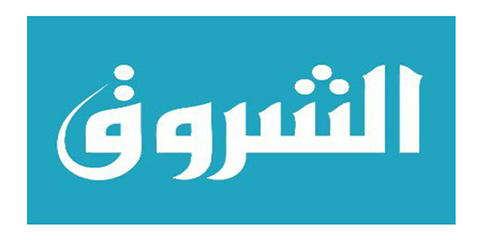
May 04, 2025: Algerian authorities suspend Echorouk News TV for 10 days after it used a racist slur against African migrants. ANIRA demands an apology, calling it a violation of human dignity.
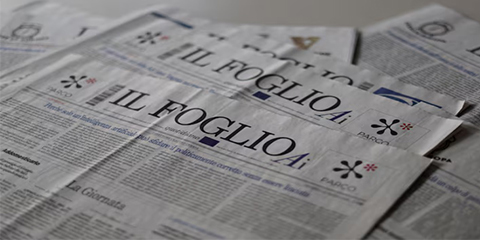
April 21, 2025: An Italian newspaper, Il Foglio, successfully published a month-long AI-written insert and praised its irony and analytical abilities, while affirming that AI will complement—not replace—quality journalism.
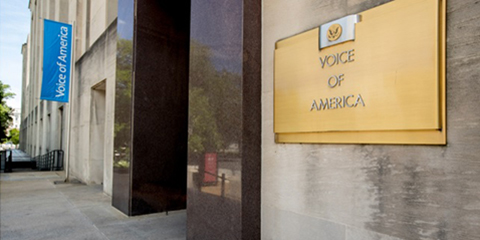
March 29, 2025: A federal judge has blocked the Trump administration’s attempt to dismantle Voice of America (VOA), ruling that the move likely violated legal procedures. The decision protects over 1,200 journalists and media staff.
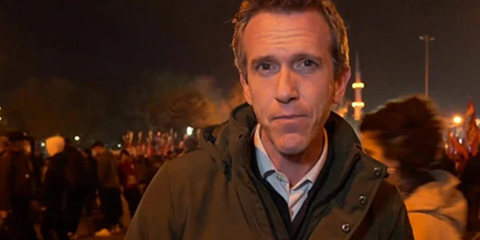
March 28, 2025: Turkey deports BBC journalist Mark Lowen over 'public order' threat and fines opposition TV channels covering Istanbul Mayor's arrest. Critics condemn crackdown on press freedom amid rising political tensions.
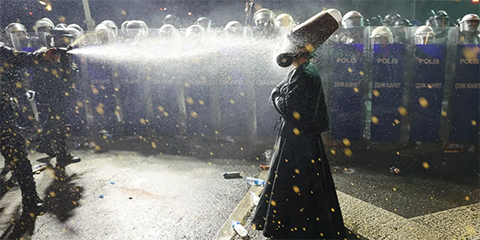
March 25, 2025: Turkish authorities must release detained journalists covering protests and end press crackdowns. CPJ condemns police violence and home raids targeting media workers.
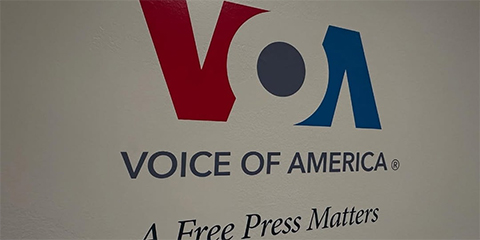
March 16, 2025: The Trump administration has ordered furloughs at U.S.-funded broadcasters, including Voice of America (VOA) and Radio Free Asia, raising concerns about press freedom and government control over media funding.

March 08, 2025: Senior UK TV producers are taking shelf-stacking and pub jobs as the industry faces a prolonged crisis. Thousands are unemployed, with freelancers struggling to find work. Learn more about the factors behind this collapse.

June 11, 2025 Pakistan celebrated a narrow win over Bangladesh, but beneath the jubilation lies a deeper crisis—from sidelined veterans to a collapsing domestic structure—signaling an urgent need for cricket reform.
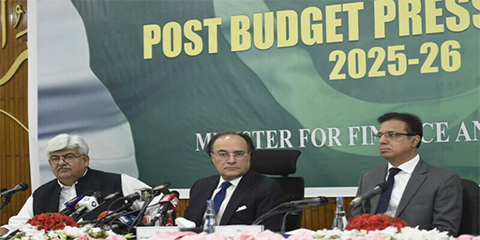
June 11, 2025 Journalists walked out of the post-budget press conference in Islamabad to protest the absence of a technical briefing and the government's dismissive behavior, calling it unacceptable and intolerable.
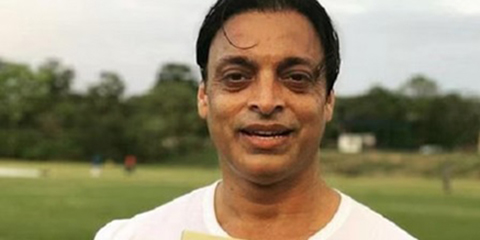
May 31, 2025 Dr. Nauman Niaz has issued a defamation notice to Shoaib Akhtar over derogatory remarks made during a recent broadcast, reigniting a longstanding media feud between the two prominent figures in Pakistan.

May 30, 2025 The Human Rights Commission of Pakistan has demanded the full repeal of PECA, citing its vague language, coercive powers, and threats to free speech and digital rights in Pakistan.

May 30, 2025 The Pakistan Federal Union of Journalists (PFUJ) has condemned the murder of journalist Syed Mohammed Shah in Jacobabad, calling for urgent justice and improved safety for media professionals in Sindh.